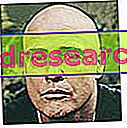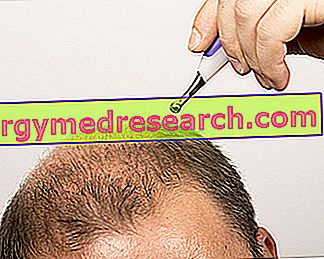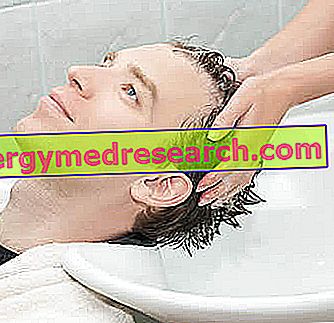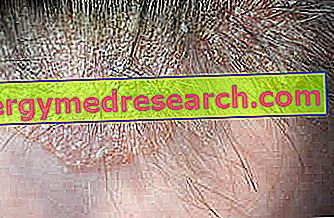Why does hair fall out? The life cycle of the hair involves the alternation of three phases, one of growth, one of rest, and one of fall. The average duration of this cycle varies from 2 to 7 years. It is therefore estimated that each hair follicle produces about 20 hairs over the course of its life
Category hair
Baldness is the most common name for "normal hair loss" (NOT a disease). Also known as "androgenetic (or androgenic) alopecia", it predominantly affects males compared to females (around 80% versus 50%). It is believed that baldness may be due to hypersensitivity of hair follicles towards androgenic sex hormones (the presence of other causes or predisposing factors is not excluded)
Dandruff is a discomfort that affects the scalp, manifesting itself with a whitish desquamation that covers the head. Dandruff is caused by increased cellular turnover in the skin. Dying and detaching, the superficial epidermal layers form light scales, which can fall, generating the so-called "snow effect"
Generality Scalp psoriasis is an inflammatory disease that causes plaque lesions, with redness, slight occasional itching and flaking similar to dandruff. This disorder has a chronic recurrent nature, subject to periods of remission alternating with others of reappearance and / or worsening of symptoms
Fragile and dry hair, which weakens and falls easily, is a common symptom of thyroid disease. The hair follicles are particularly sensitive to the state of health of the organism and tend to slow down their activity in the presence of important psychophysical stress. In this way it is possible to allocate more energy resources to support vital functions
Some rules to improve hair health Wash First of all it is important to remember that excessive temperatures, both during washing and drying, can damage the hair. It is therefore useful to use the appropriate diffuser to be applied on the hair dryer and keep the jet of hot air at a distance from the hair not less than 25 centimeters
Trichotillomania is an obsessive-compulsive behavior disorder characterized by an uncontrollable urge to pull and tear the hair from the scalp. The pathological act can be directed to eradicate also eyebrows, eyelashes, beards and other body hairs, including those covering the abdomen, legs, arms, armpits or pubic area
Related articles: Alopecia areata Definition Alopecia areata is a disorder characterized by the sudden loss of hair and / or hair in limited areas. The exact causes of origin are still little known. Currently, it is believed that alopecia areata is an autoimmune disorder, mediated by abnormal T lymphocytes that attack the hair follicle and block its activity
Definition The gray hair is the progressive discoloration of hair and hair, which over the years tends to become white (white). The graying process is due to the progressive decrease in the activity of melanin-producing cells (melanocytes) located inside the hair bulb and in the marrow of the hair. The appearance of white hair affects both sexes, although it generally starts in the temples in men, while in women it is spread more evenly over the entire scalp
Related articles: Brittle and dry hair Definition Fragile and dry hair, which weakens easily, are commonly found in the presence of nutritional deficiencies, infections, subjection to surgery, burns, hormonal changes and various diseases, including thyroid ones. Detail of a photographic model characterized by particularly dry and thin hair Possible Causes * of brittle and dry hair Nervous anorexia Hyperthyroidism Hypothyroidism Hashimoto's disease
Definition Dry scalp is a problem often associated with a sensation of itching, discomfort or burning. In most cases, this symptom is due to the lack of cutaneous lipids and / or dehydration. The alteration of the hydro-lipid balance can be due to dysfunctions of the sweat and / or sebaceous glands, which do not produce sufficient water and sebum, depriving the scalp of their physiological protection










